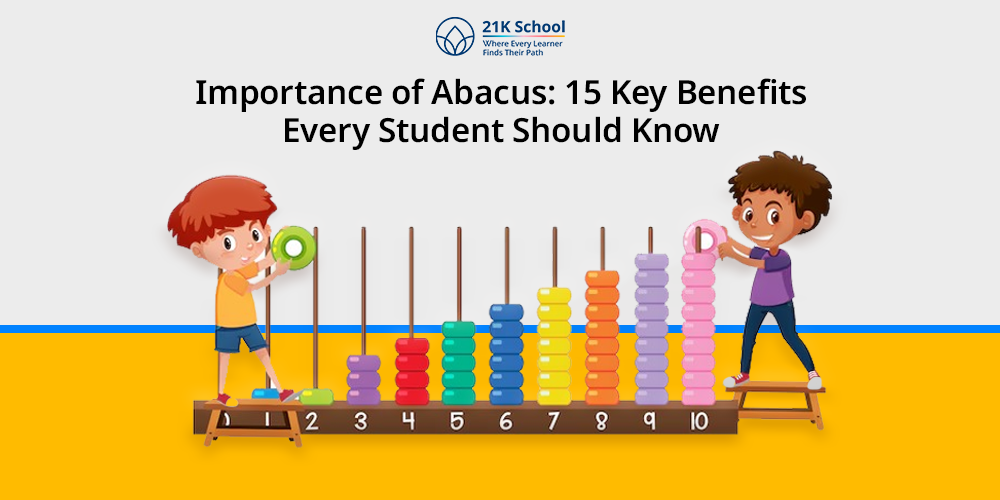
Abacus has been a tool that was constant in our mathematics lessons spanning centuries. The application of abacus has been so rooted that even digitally advanced tools couldn’t replace this.
Our worlds have shifted now and so have our learning patterns, but for mathematics abacus still makes learning fun, promotes brain development, fosters creativity, and student engagement.
Let’s dive in this article and look up at what necessitates the importance of abacus in present times.
Table of Contents
- What is Abacus?
- Importance of Abacus: 15 Major Ones
- 1. Mental Math Mastery
- 2. Improved Concentration and Focus
- 3. Aids in Brain development
- 4. Improves Hand and Eye Coordination
- 5. Develops Patience and Perseverance
- 6. Improves Logical Thinking
- 7. Enhanced Memory and Retention
- 8. Development of Analytical Thinking and Logic
- 9. Boosting Confidence and Academic Performance
- 10. Improved Fine Motor Skills
- 11. Lowers Stress Levels
- 12. Enhance Cognitive Development
- 13. Important in Inclusive Education
- 14. Better Problem Solving Abilities
- 15. Channelizes Creativity
- Concluding Comments
What is Abacus?
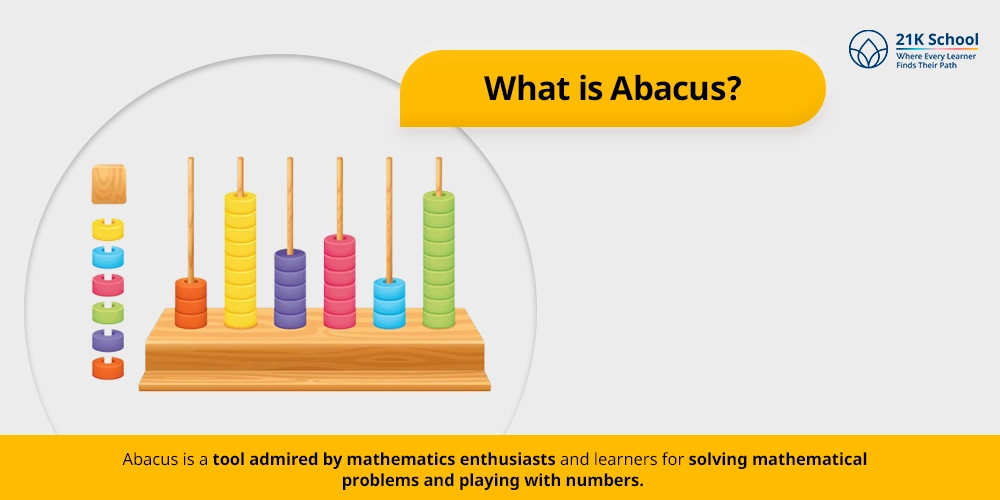
Abacus is a tool admired by mathematics enthusiasts and learners for solving mathematical problems and playing with numbers.
To move in detail, the abacus comes in a frame like apparatus in which you see rods for the place values and beads showing the numbers. There is also a divider in between vertical rods above which lie upper numbers (heaven numbers) and below are lower numbers.
When we examine history, it depicts its origin from thousands of years ago as a calculating tool for additions, substractions, etc. The word “abacus” comes from Latin “abacus,” which derived from Greek “abax” (genitive “abakos”).
Beginning your child’s journey with an abacus can serve as a magical tool teaching them mathematics as any other fun learning activities and develops the cognitive development of children.
You might be in awe but this is not all of what importance this abacus tool holds. Continue reading for an enlightening journey of abacus.
Importance of Abacus: 15 Major Ones
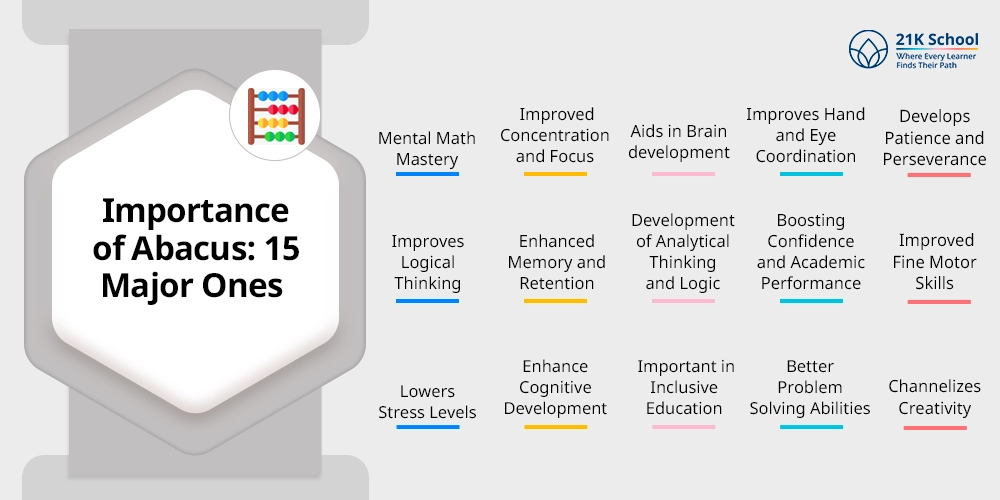
The craze of abacus among teachers, learners and parents is mostly because of the easiest calculation techniques it offers, but abacus affects positively so much of your IQ and other brain development areas.
You can join the next section for getting more details on the benefits of learning abacus with us.
1. Mental Math Mastery
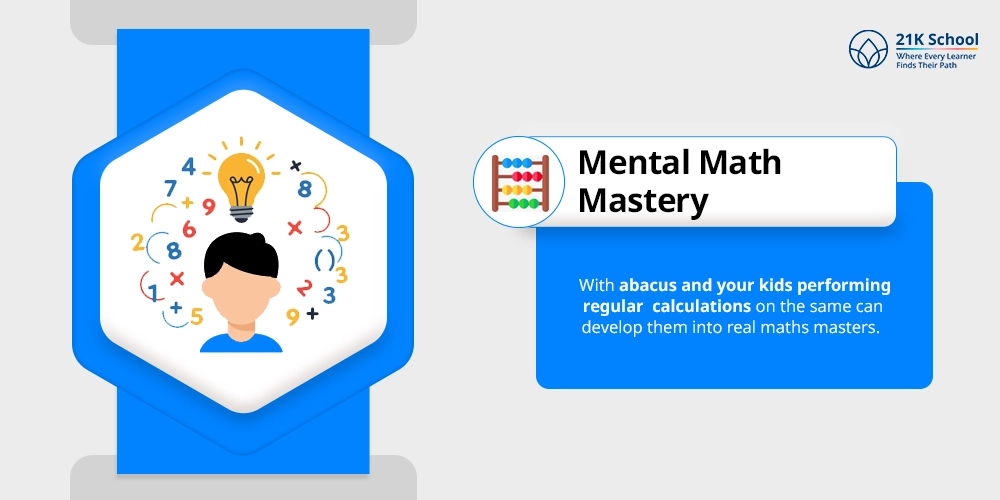
With abacus and your kids performing regular calculations on the same can develop them into real maths masters.
The visualization of beads and practical calculations lead your students into summing and subtracting numbers like a game, boosting their accuracy and pace too.
2. Improved Concentration and Focus
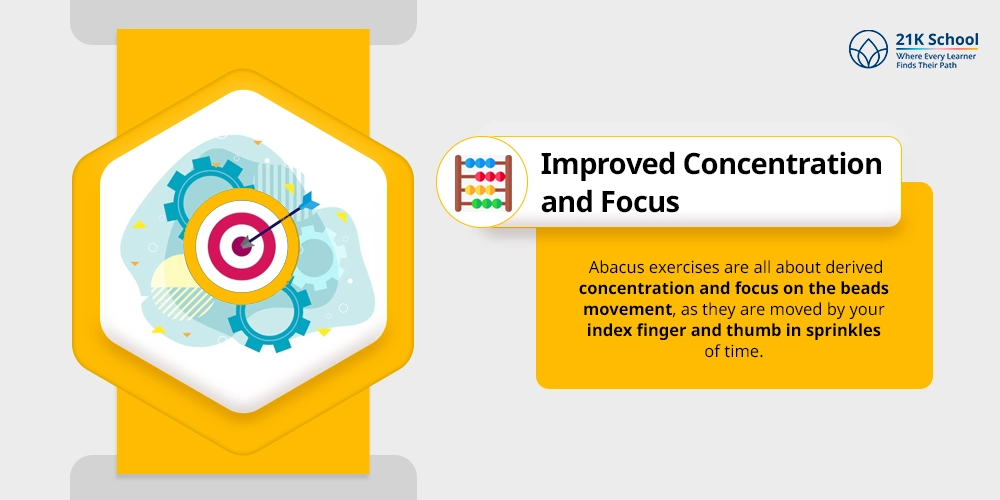
Abacus exercises are all about derived concentration and focus on the beads movement, as they are moved by your index finger and thumb in sprinkles of time.
The learners with better focus and concentration power, achieve more in their theory subjects as well, making themselves feel proud.
Explore how to concentrate in studies.
3. Aids in Brain development
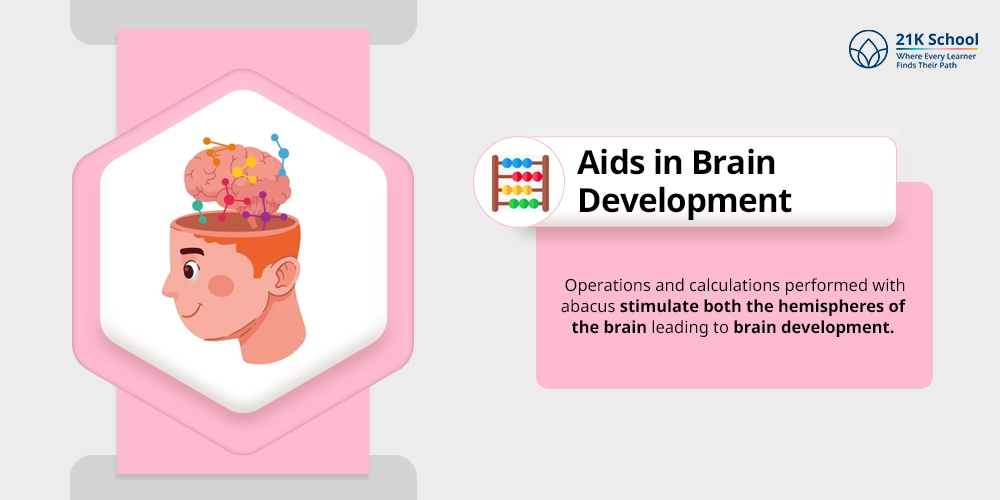
Operations and calculations performed with abacus stimulate both the hemispheres of the brain leading to brain development.
This advancement in the brain boosts emotional and logical parts of the brain individually which results in better critical thinking skills and the birth of creativity in your child.
You can notice your thoughts processing being changed for better once you start practicing abacus.
4. Improves Hand and Eye Coordination
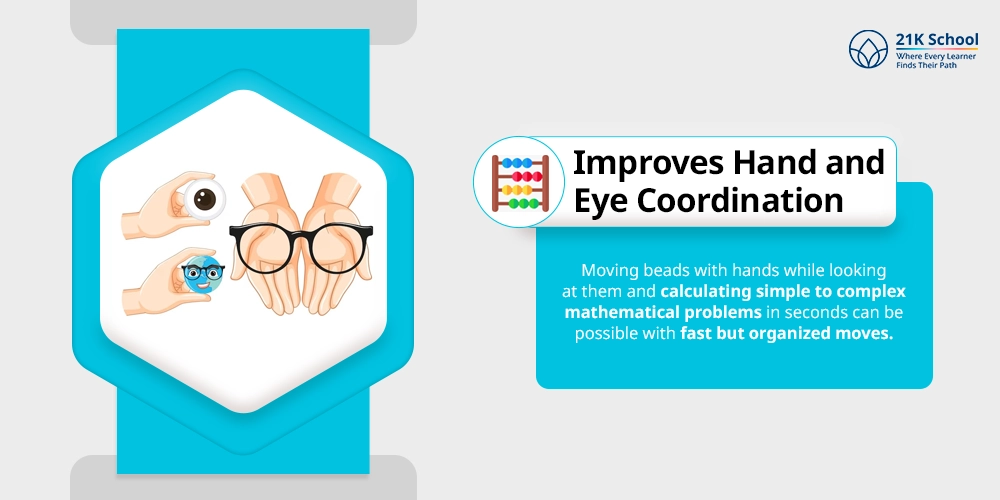
Moving beads with hands while looking at them and calculating simple to complex mathematical problems in seconds can be possible with fast but organized moves.
Repeated practice of these operations with abacus improves hand and eye coordination of children which are required for multi-tasking and many other activities leading to cognitive learning enhancement.
5. Develops Patience and Perseverance
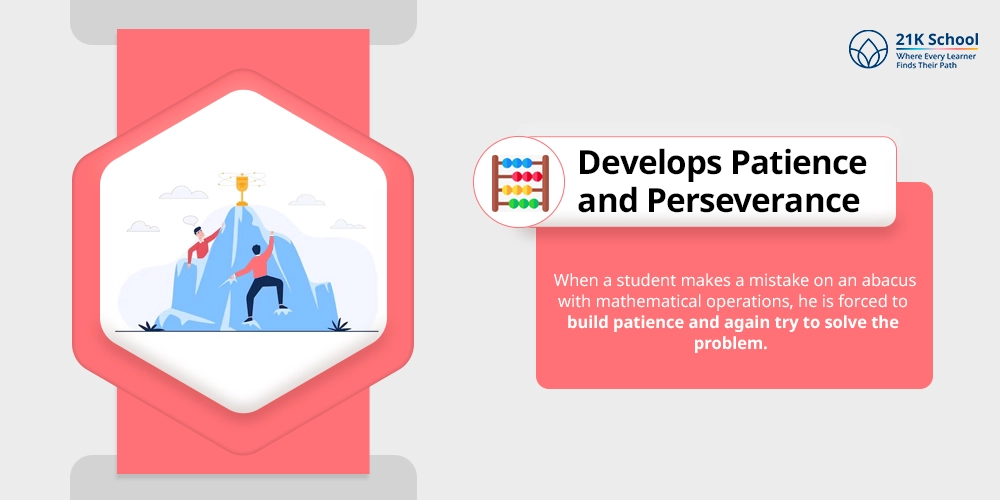
You might be surprised but abacus also benefits your patience and perseverance development. When a student makes a mistake on an abacus with mathematical operations, he is forced to build patience and again try to solve the problem.
The repetitive trial and errors while learning abacus brings perseverance into the picture, and a feeling of not giving up.
6. Improves Logical Thinking
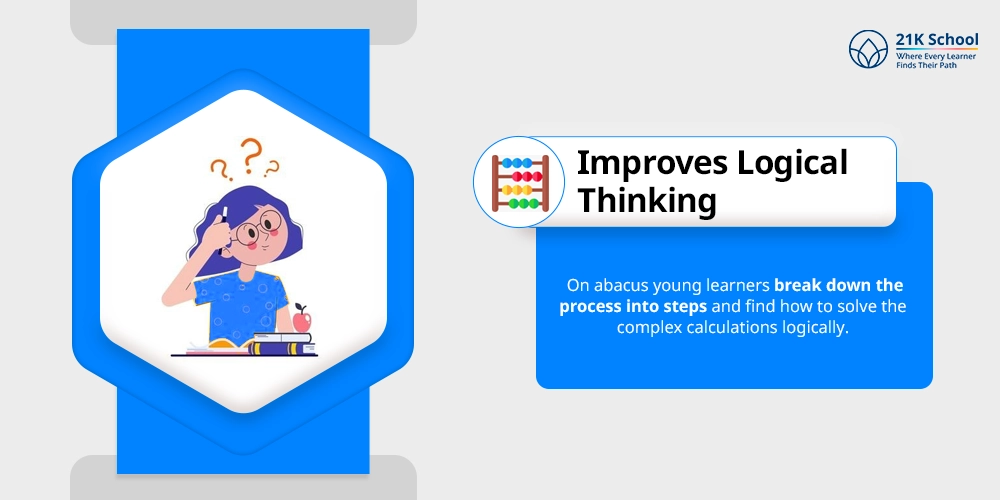
Maths is mostly based on logical solutions and proceedings. On abacus young learners break down the process into steps and find how to solve the complex calculations logically.
The beads help in visualizing their logics and bring their thoughts as correct answers.
7. Enhanced Memory and Retention
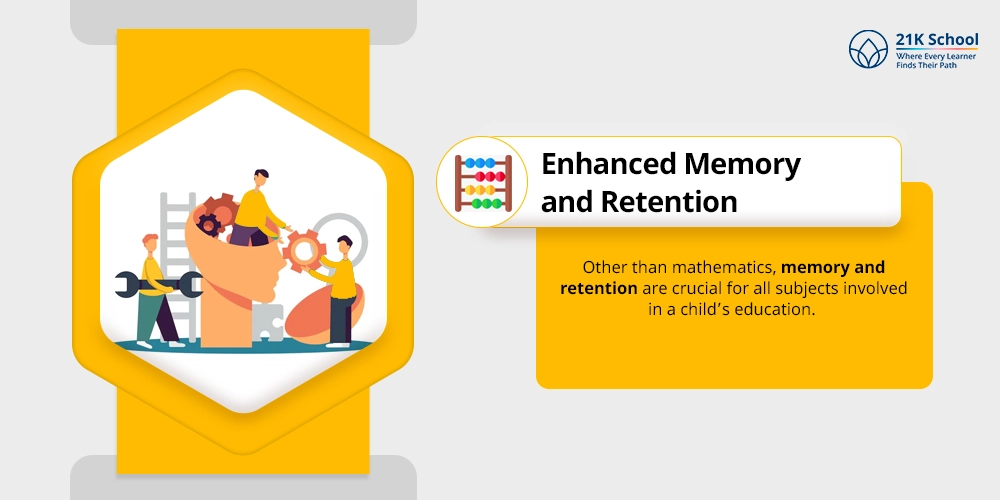
Other than mathematics, memory and retention are crucial for all subjects involved in a child’s education.
Training on abacus activates memory centres in the brain to be active for continuous time, which trains it to enhance retention of the formulas involved.
These types of learning further boosts academic performance along with confidence of learners.
8. Development of Analytical Thinking and Logic
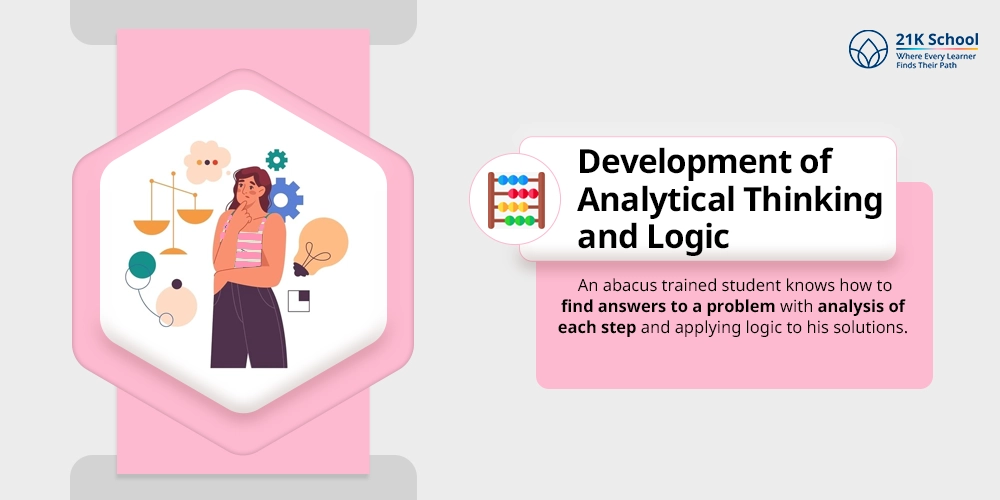
An abacus trained student knows how to find answers to a problem with analysis of each step and applying logic to his solutions.
These practices assist in development of analytical thinking and make the learners smarter in their daily life too.
9. Boosting Confidence and Academic Performance
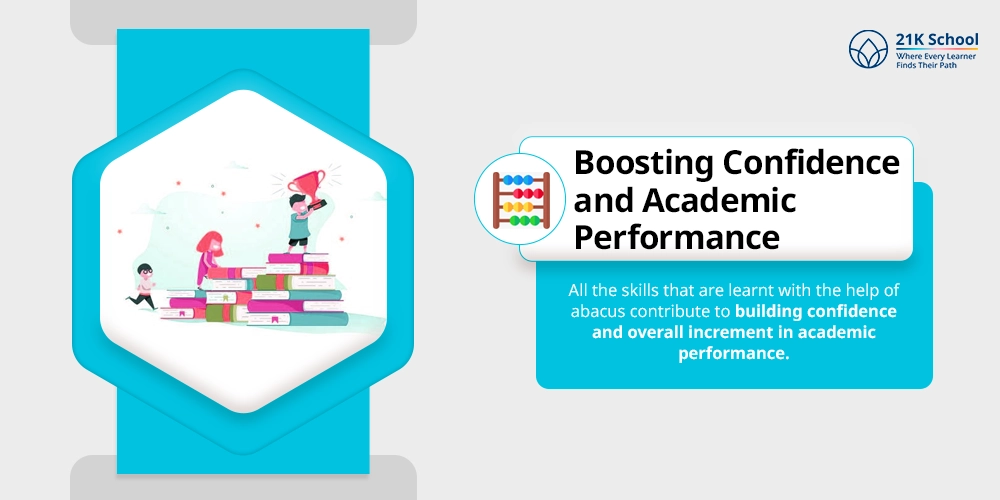
All the skills that are learnt with the help of abacus contribute to building confidence and overall increment in academic performance.
I guess this is why, today parents are so enthusiastic about sending their children to learn abacus and support them in this game-based learning.
10. Improved Fine Motor Skills
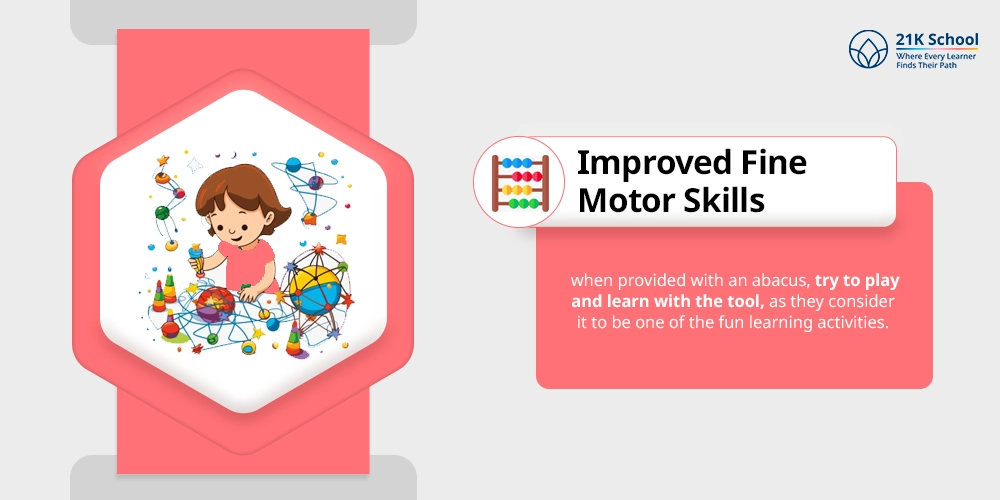
You might have seen kids who are poor at holding pencils or in doing any classwork or homework. Such students, when provided with an abacus, try to play and learn with the tool, as they consider it to be one of the fun learning activities.
The manual handling of beads and fast movements of fingers while calculating the sums improves fine motor skills of these kids.
11. Lowers Stress Levels
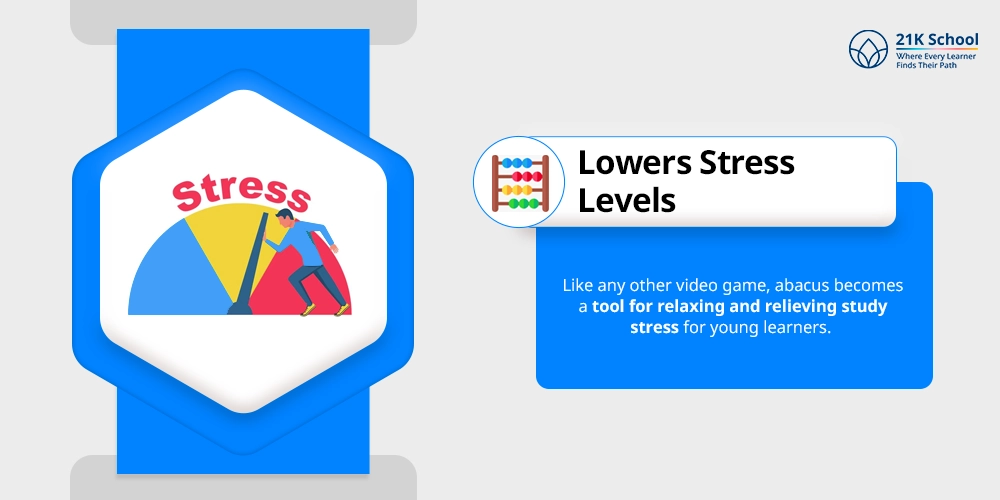
Like any other video game, abacus becomes a tool for relaxing and relieving study stress for young learners.
The quick moves and tick tack sounds of beads unknowingly make students feel active and motivated for other tasks ahead in their study routine.
Lower stress levels results in lower cortisol levels which further improves the children’s mental health and physical health.
12. Enhance Cognitive Development
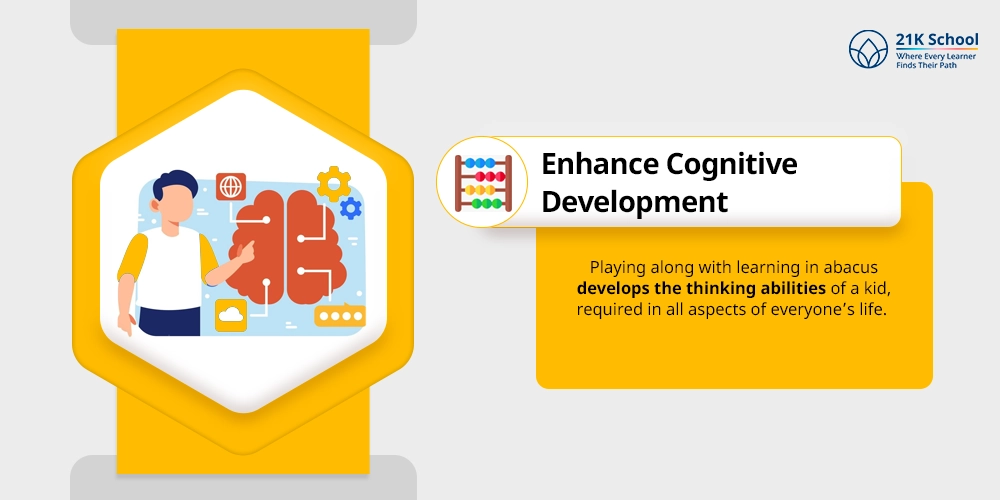
Playing along with learning in abacus develops the thinking abilities of a kid, required in all aspects of everyone’s life.
Either it is to learn or to think deeply or rationally, abacus satisfies us by fostering our cognitive development by varied ways including logical thinking, imagination skills and visual learning.
13. Important in Inclusive Education
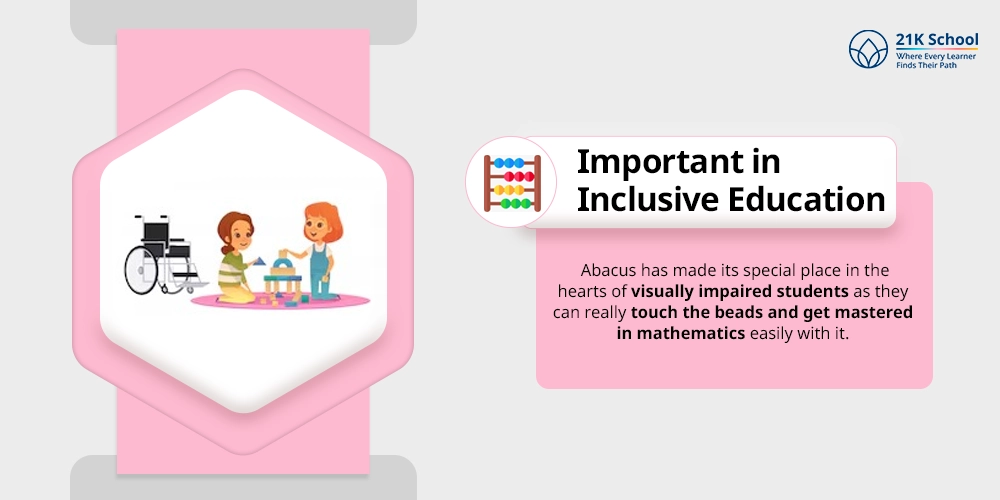
Abacus has made its special place in the hearts of visually impaired students as they can really touch the beads and get mastered in mathematics easily with it.
Abacus was long ago accepted by teachers, from an inclusive education background to help such kids to learn and bring fun in learning.
14. Better Problem Solving Abilities
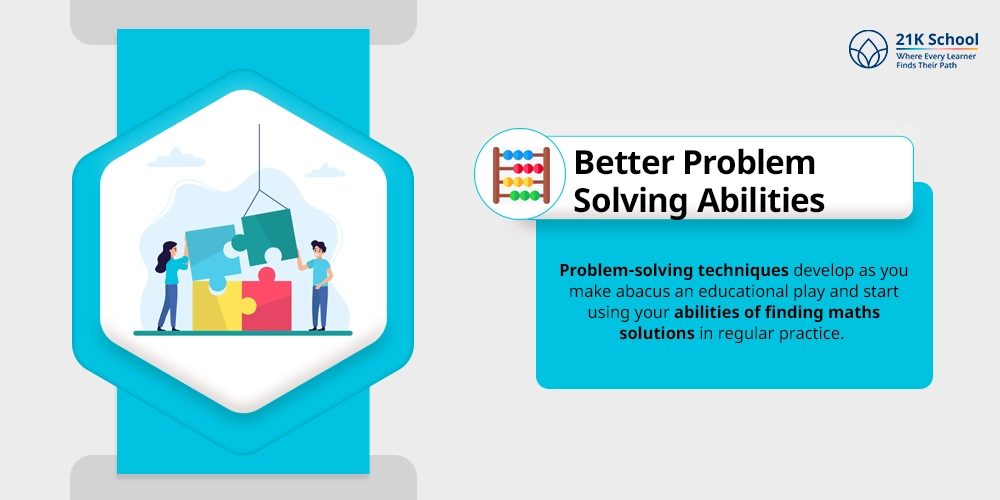
Problem-solving techniques develop as you make abacus an educational play and start using your abilities of finding maths solutions in regular practice.
As a student of abacus, you can solve tough mathematical questions all by yourself. You can do it by breaking them into small understandable steps, which enhances your logical reasoning skills giving rise to problem solving.
15. Channelizes Creativity
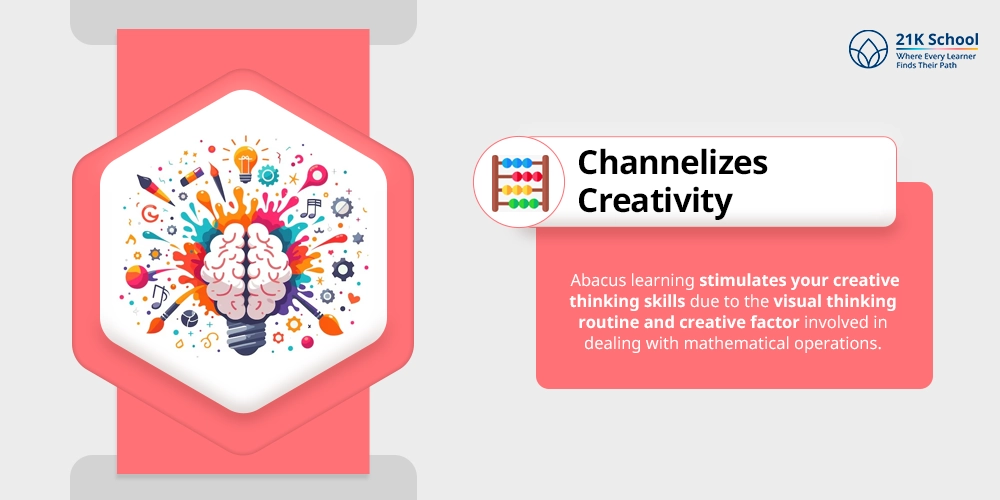
Abacus learning stimulates your creative thinking skills due to the visual thinking routine and creative factor involved in dealing with mathematical operations.
When students start to attain a bit of mastery in abacus, they start to see problems with individual angles needing creativity.
Visualization of beads and its rhythmic movement with hands helps in this type of creative approach to maths problems, also needed in other aspects of real life.
Concluding Comments
Abacus is an ancient tool brought to public use, calculating simple maths problems and improving their cognition.
By using abacus, kids and young learners enjoy mathematics lessons besides learning other most usable competencies like problem solving, creative thinking, decision making, and few others.
Repetitive attempts on learning abacus also bring physical changes in brain and cognitive development, thus reducing the mental health issues of a kid from a young age.
